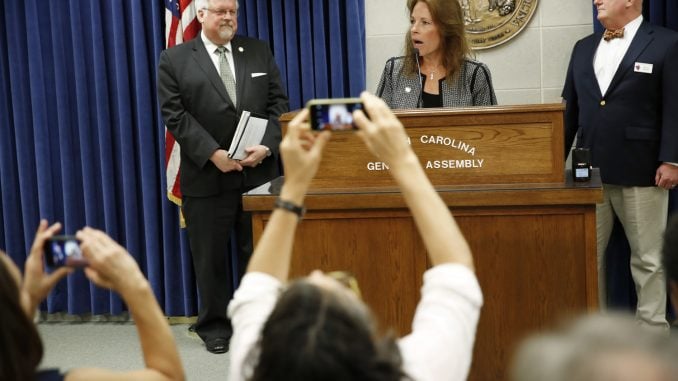
With the passage of the most recent state budget, North Carolina has joined the rest of the country in ensuring that 16- and 17-year-old offenders are processed in the state’s juvenile justice system instead of as adults. This long-overdue reform will reduce crime, improve public safety, and increase opportunities for young people.
Not to say that this was easy. Despite overwhelming bipartisan support from the state’s Sheriffs’ Association to raise the age when trying juveniles as adults, Gov. Roy Cooper vetoed the 2017-2018 budget compromise which included a provision that would not only raise the age but also includes funding for a Juvenile Jurisdiction Advisory Committee.
The fact is that teens in North Carolina that have had run-ins with the law and are convicted of misdemeanors or felonies have one path before them – absorption in the adult prison system.
This punitive recourse means that minors are 50 percent more likely to be physically attacked by a fellow inmate and twice as likely to be assaulted by staff.
But when minors go to trial, it’s possible their charges will be dismissed. After all, the court considers them to be an adult with little or no criminal history.
For a teen already headed down the wrong path, this can send the dangerous message that his or her actions don’t have consequences. However, if the minor is convicted and gets a prison sentence, he or she is held in an adult facility that’s ill-equipped to handle young adults or provide them with few opportunities to earn a high school diploma or get vocational training so that they can become productive members of society upon being released.
The John Locke Foundation, a free market think tank in North Carolina, found a 33 percent increase in re-arrest rates for teens tried as adults. Another study found the re-arrest rates for teens tried as adults were 85 percent higher than for teens in the juvenile justice system.
A 2010 report from the Department of Justice concluded that “all of the studies found higher recidivism rates among offenders who had been transferred to criminal court, compared with those who were retained in the juvenile system.”
Findings that are consistent with a report put together by the North Carolina Commission on the Administration of Law and Justice found that “rehabilitation of juveniles is more effectively obtained in the juvenile justice systems and juvenile facilities, as measured by recidivism rates.”
Deterring crime and promoting law-abiding citizens is paramount to any society, but trying minors as adults is clearly misguided as the evidence shows.
For many years, North Carolina has had the unfortunate distinction of being one of only two states in the nation that prosecutes teenagers as adults, thanks to action by advocates and leadership from lawmakers this unfair practice has been changed.
Raising the age as a part of the budget agreement improves the way North Carolina’s justice system treats young people and finally protects our children from the harms of the adult prison system.
Anna Beavon Gravely is a spokesperson for Generation Opportunity and lives in Raleigh.



